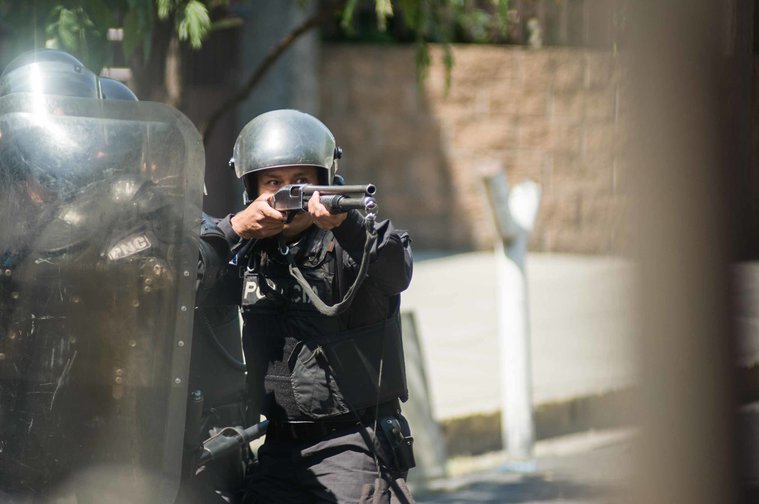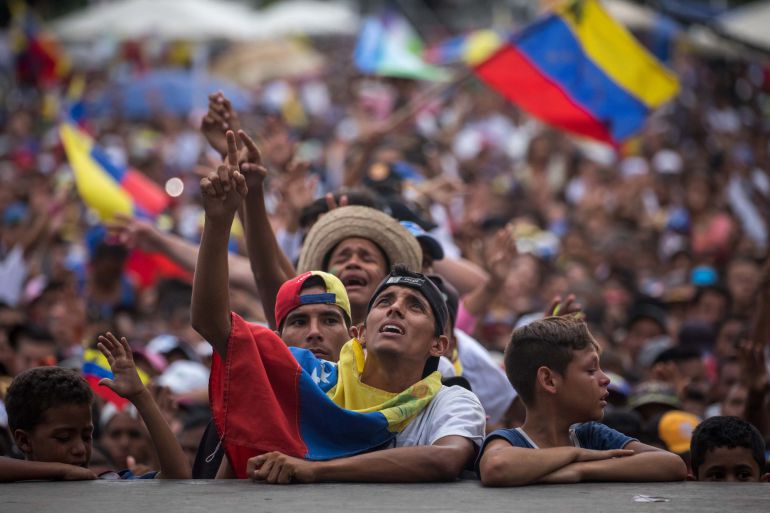The organization Un Mundo Sin Mordaza (A World Without a Gag) published its report on Freedom of expression for the first semester of 2019, which compiles cases of systematized violations of freedom of expression and information in Venezuela, arbitrary detentions and judicial proceedings against journalists, media censorship, blocks to digital platforms, and connectivity failures that affect access to information.
The Universal Declaration of Human Rights enshrines 30 interdependent, non-transferable, and inalienable human rights. They frame rights that equally belong to all people without distinction of race, color, sex, language, religion, national or social origin, political position, economic position, birth, political opinion, or any other nature. This last precept is interrelated with article 19 on freedom of expression, which is violated every time a person cannot exercise.
The non-governmental organization Un Mundo Sin Mordaza was created in 2009 after a worldwide protest in solidarity with the crackdown on mass media in the country that year. It has since been dedicated to the protection and defense of this right.
Recently, this NGO published its report on Freedom of expression for the first semester of 2019, which compiles cases of systematized violations of freedom of expression and information in Venezuela, arbitrary detentions, and judicial proceedings against journalists documented and reported by organizations such as Espacio Público (Public Space) and the Instituto Prensa y Sociedad (Institute for Press and Society, Ipys), as well as the National Union of Press Workers (SNTP). When reviewing the document, the increase of the persecution against journalists, graphic reporters, foreign correspondents, and even citizens who express their opinions on social media becomes evident.
Violations of freedom of expression in Venezuela have rung the alarm for human rights defenders, political activists and members of the media. According to Espacio Público, the regime has expressed its intolerance towards the opinions of society against victims that range from musicians to university professors. During the first semester of 2019, 252 cases were recorded, resulting in 522 violations of freedom of expression. Compared to 2018, this represents a 193% increase in the number of cases and a 314% in the number of violations.
The report indicates that 55 journalists were arbitrarily detained during the study period, 22 of whom belong to international media or are foreign correspondents. Some were deported in the custody of security agencies. Perhaps the best-known case was that of Luis Carlos Díaz, who was subject to forced disappearance in March 2019 and later transferred to the Bolivarian Service of National Intelligence(SEBIN) with accusations of political instigation.
The shutdown of media outlets was also reviewed in this compilation. 22 broadcasts were suppressed by the National Telecommunications Commission (CONATEL). Un mundo sin mordaza claims that access to information is more complicated for Venezuelans each day due to electrical failures throughout the country, especially outside the capital city.
Websites, which became the go-to option to access information after many traditional printed media were shut, were targets of censorship. According to the Instituto Prensa y Sociedad (Ipys), there were 33 block episodes against digital platforms and 22 episodes of temporary or extended internet blackouts that affected their operations during the first half of 2019. Also, the free dissemination of information on YouTube, Periscope, Google Drive and Bing services was systematically restricted.
A reason to read these types of reports is that they help understand first hand the reality of what is happening in Venezuela, from organizations that work directly with the field. The documents also guide the citizen on the legal instruments that protect him against any violation of his rights to express freely and to access information.
The Special Rapporteurship for Freedom of Expression of the OAS expressed in the Declaration of Chapultepec of March 11, 1994:
“A free society can thrive only through free expression and the exchange of ideas, the search for and the dissemination of information, the ability to investigate and question, to propound and react, to agree and disagree, to converse and confront, to publish and broadcast. Only by exercising these principles will it be possible to guarantee individuals and groups their right to receive impartial and timely information. Only through open discussion and unfettered information will it be possible to find answers to the great collective problems, to reach consensus, to have development benefit all sectors, to practice social justice and to advance the quest for equality. We therefore vehemently reject assertions who would define freedom and progress, freedom and order, freedom and stability, freedom and justice, freedom and the ability to govern as mutually exclusive values”




